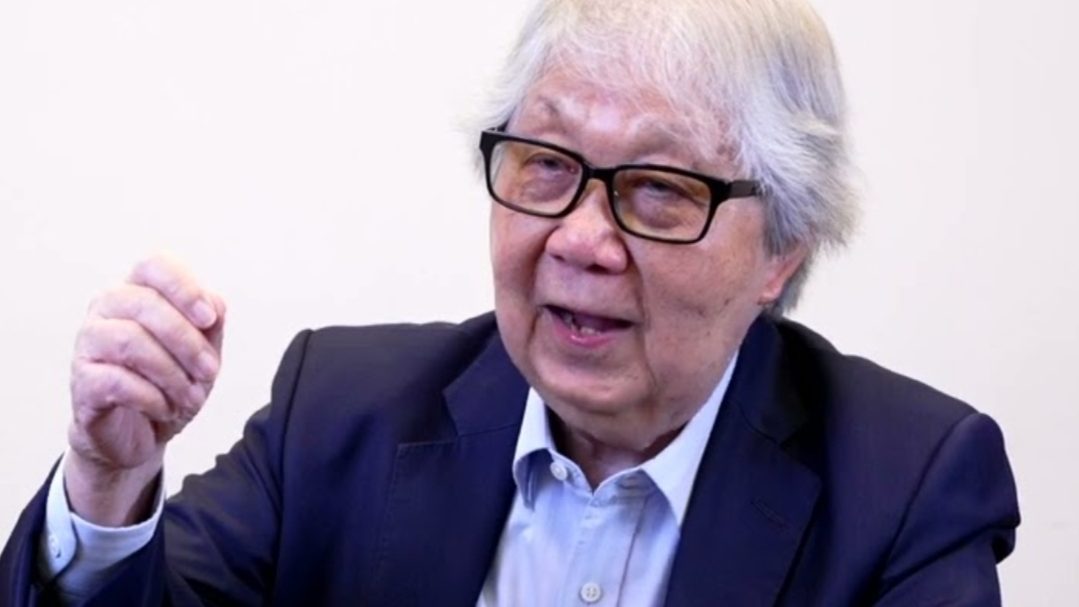SINGAPORE: Veteran diplomat Tommy Koh has joined those who have expressed disappointment over Allianz’s plans to acquire a majority stake in Income Insurance after the German conglomerate made a S$2.2 billion offer for a 51% stake in the company that started out as a social enterprise dedicated to serving all Singaporeans.
Prof Koh did not mince words, as he asserted on social media that selling Income is not a good idea, and the social purpose it was aimed at is still valid today. He wrote:
“INCOME started life as a cooperative of NTUC like Fairprice. The idea was to offer insurance to the people at affordable rates. A few years ago it was made into a company and ceased to be a cooperative.
Now we are told that it may be sold to a German insurance company.
I don’t think it’s a good idea to sell INCOME. It was founded to serve a social purpose and a social need. They remain valid today. I wish to argue that INCOME and Fairprice should never be sold.”
This call by Singapore’s Ambassador-at-large quickly gained traction online, with ordinary Singaporeans and other prominent individuals agreeing with Prof Koh’s take.
Former mainstream media editor PN Balji commented, “I am against selling Income. Will we dare sell SIA?”
National University of Singapore Associate Professor Ben Leong shared the post on his own Facebook page and opined, “I agree that something is wrong with this picture.”
These comments come after ex-NTUC Income chief Tan Kin Lian criticised the takeover bid.
Responding to a question about whether the company’s “noble socialist philosophy has lost its roots,” the two-time former presidential candidate, who led NTUC Income for 30 years, said last week:
“This is sad. But it reflects what has been happening in Singapore for the past three decades. We are following the bad practices of America. America is now in decay. Singapore may follow.”
Mr Tan’s tenure as general manager of NTUC Income began in 1977, and he was later re-designated as chief executive officer until April 2007.
Under his leadership, the company’s assets surged from S$28 million in 1977 to over S$17 billion in 2007, and policyholders grew to more than one million.
Others have expressed similar concerns.
Income Insurance Limited, commonly known as Income, is a composite insurer in Singapore that provides life, health, and general insurance.
Initially founded as NTUC Income Insurance Co-operative Limited, the company transitioned to a public non-listed entity named Income Insurance Limited in September 2022.
Despite the rebranding, Income has maintained its commitment to affordable insurance, a principle that dates back to its establishment in 1970.
The co-operative income model is rooted in the Modernisation Seminar of 1969. At this seminar, delegates from NTUC-affiliated unions addressed the challenges faced by Singaporean workers, primarily blue-collar and low-income earners.
Inspired by the vision of NTUC founding leader Devan Nair and supported by then Finance Minister Goh Keng Swee, NTUC co-operatives or Social Enterprises, including Income, were created to serve the needs of the working population.
Income began with the goal of making life insurance accessible to all, a significant challenge at the time when such protection was a luxury only the wealthy could afford.
Over the decades, it has grown to serve millions of customers. In 2010, the Income Family Micro-Insurance and Savings Scheme (IFMISS) was launched to support low-income households with young children.
While Allianz assured that NTUC Enterprise Co-operative Ltd would retain a substantial stake in Income Insurance, some Singaporeans have questioned whether the acquisition by a foreign entity will impact the company’s foundational values.
A sizeable group online are asking where the money from the potential sale is going exactly and how it will help Singaporeans.
Some expressed fear that the acquisition by a foreign conglomerate could lead to a decline in the company’s product offerings, while others decried the sale of an entity that began as a social enterprise to a “profit seeker”. /TISG

